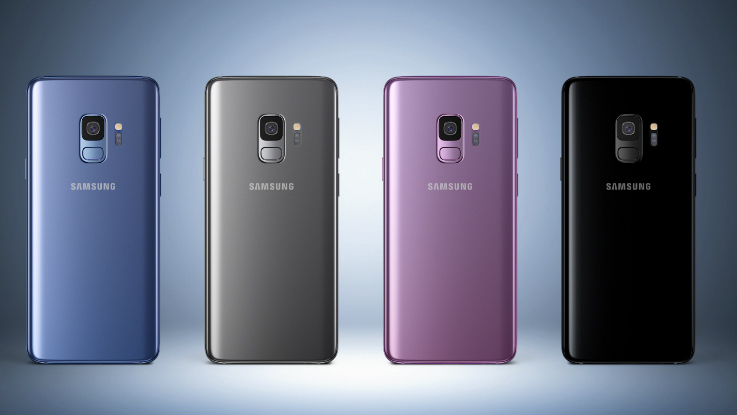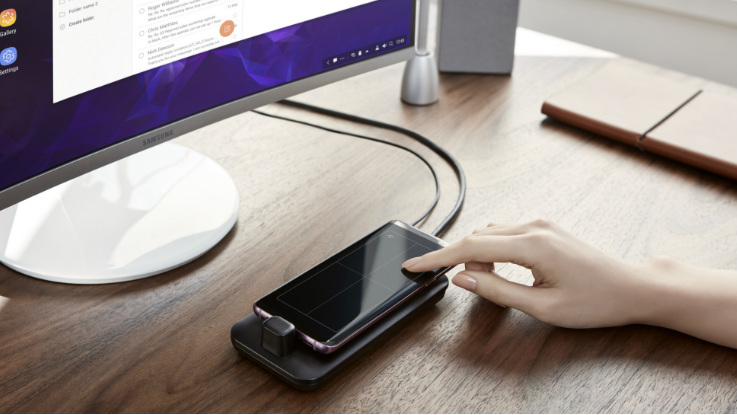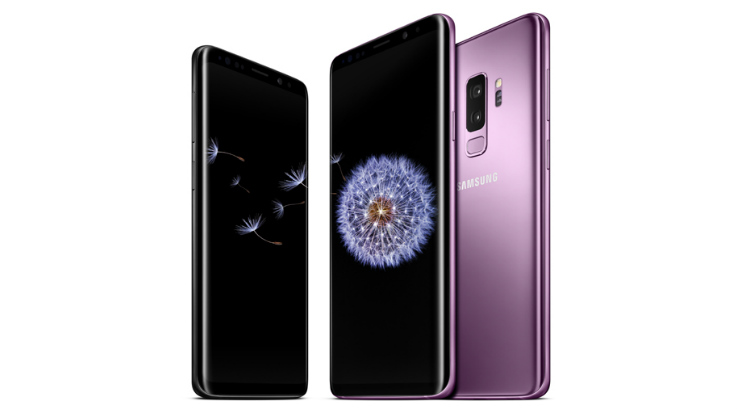Samsung has finally taken the wrap off from its latest flagship device, the Galaxy S9 and Galaxy S9+ at the Mobile World Congress (MWC) 2018. The smartphones will be available in Midnight Black, Lilac Purple, Coral Blue and Titanium Gray colour options and both the phones will be available starting from March 16, 2018, in select markets.
The major changes in the Galaxy S9 duo come in the camera department. The S9 features a 12-megapixel sensor with the variable Aperture so that users will be able to switch between f/1.5 and f/2.4 apertures. The Galaxy S9+ features a dual-camera setup at the rear with a combination of two 12-megapixel sensors with one of them featuring variable aperture as mentioned above along with a secondary sensor with f/2.4 aperture. Both the sensors present in Galaxy S9+ and single rear camera in Galaxy S9 feature optical image stabilization (OIS) and both of them come loaded with laser and Dual Pixel autofocus. For the front, there is an 8-megapixel camera with f/1.7 aperture.

The smartphones also offer automatic Motion Detection along with a slow-motion video that captures 960 frames per second. Users can select background music from 35 different options or add a tune from their favourite playlist. Users can also easily create, edit and share GIF files with a simple tap.
Furthermore, the Galaxy S9 and Galaxy S9+ comes with AR Emoji, which is similar to what we have seen in Apple iPhone X. AR Emoji uses a data-based machine learning algorithm, which analyzes a 2D image of the user and maps out more than 100 facial features to create a 3D model that reflects and imitates expressions, like winks and nods. Further, users can share AR Emoji not only in video but also with a range of stickers and uses a standard AGIF file format so users can share their emojis across most third-party Messaging platforms.
Samsung has also unveiled the next-generation Samsung DeX, a docking system so that users can easily connect the Galaxy S9 and S9+ to a larger monitor, keyboard and mouse to expand the mobile experience with enhanced document editing or even full-screen gaming. Users can also transform the Galaxy S9 and S9+ into a TouchPad with the DeX Pad.

Another highlight of the Galaxy S9 series are the speakers. The devices come with stereo speakers which are tuned by AKG. The phones will also come bundled with AKG-tuned earphones. Coming to the sheer specifications, the Galaxy S9 and Galaxy S9+ will feature a 5.8-inch and 6.2-inch QHD+ Super AMOLED Infinity Display with an aspect ratio of 18:5:9.
The Galaxy S9, Galaxy S9+ is powered by octa-core Qualcomm Snapdragon 845 processor, which will be available in the US and China, while the Samsung Exynos 9810 SoC will be available in other regions. The company’s in-house Processor is based on 10nm process and features four cores clocked at 1.9GHz, while four high-performance cores are clocked at 2.9GHz. The Galaxy S9 features a 4GB of RAM, while the Galaxy S9+ is equipped with 6GB of RAM. The phones will be available in 64GB/128GB/256GB storage options, which can be further expanded up to 400GB via micro SD card slot.

The Galaxy S9 and S9+ support three different biometric authentication options – iris, fingerprint, and facial recognition. The devices feature Intelligent Scan, a new verification that intelligently uses the collective strength of iris scanning and facial recognition technology to quickly and conveniently unlock a user’s phone in various situations. Further, the devices feature SmartThings app, which is used to connect to other Samsung and non-Samsung devices. The company has also added an improved optical sensor, which allows the Galaxy S9 and S9+ to keep track of users’ Heart Load Factor, a new measurement of the real-time demand placed on the heart.
Both the smartphones will run on the latest Android 8.0 Oreo with Samsung Experience 9.0 running top of it. The Galaxy S9 is backed by a 3000mAh battery, while the Galaxy S9+ features a 3500mAh battery with wireless charging. The phones come with IP68 certification making them water and dust resistance. On the connectivity front, both of them support, Wi-Fi 802.11 a/b/g/n/ac (2.4/5GHz), VHT80 MU-MIMO, 1024QAM, Bluetooth v 5.0 (LE up to 2Mbps), ANT+, USB type-C, NFC, GPS, Galileo, Glonass, BeiDou and Dual-SIM support. The Galaxy S9 measures 147.7mm x 68.7mm x 8.5mm and weighs 163 grams. The Galaxy S9+ measures 158.1mm x 73.8mm x 8.5mm and weighs 189 grams.


